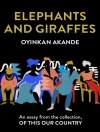Theodore E. White and the Development of Zooarchaeology in North America illuminates the researcher and his lasting contribution to a field that has largely ignored him in its history. The few brief histories of North American zooarchaeology suggest that Paul W. Parmalee, John E. Guilday, Elizabeth S. Wing, and Stanley J. Olsen laid the foundation of the field. Only occasionally is Theodore White (1905–77) included, yet his research is instrumental for understanding the development of zooarchaeology in North America. R. Lee Lyman works to fill these gaps in the historical record and revisits some of White’s analytical innovations from a modern perspective. A comparison of publications shows that not only were White’s zooarchaeological articles first in print in archaeological venues but that he was also, at least initially, more prolific than his contemporaries. While the other “founders” of the field were anthropologists, White was a paleontologist by training who studied long-extinct animals and their evolutionary histories. In working with remains of modern mammals, the typical paleontological research questions were off the table simply because the animals under study were too recent. And yet White demonstrated clearly that scholars could infer significant information about human behaviors and cultures. Lyman presents a biography of Theodore White as a scientist and a pioneer in the emerging field of modern anthropological zooarchaeology.
R. Lee Lyman
Theodore E. White and the Development of Zooarchaeology in North America [PDF ebook]
Theodore E. White and the Development of Zooarchaeology in North America [PDF ebook]
قم بشراء هذا الكتاب الإلكتروني واحصل على كتاب آخر مجانًا!
لغة الإنجليزية ● شكل PDF ● ISBN 9780803290549 ● الناشر UNP – Nebraska ● نشرت 2016 ● للتحميل 3 مرات ● دقة EUR ● هوية شخصية 6940689 ● حماية النسخ Adobe DRM
يتطلب قارئ الكتاب الاليكتروني قادرة DRM












